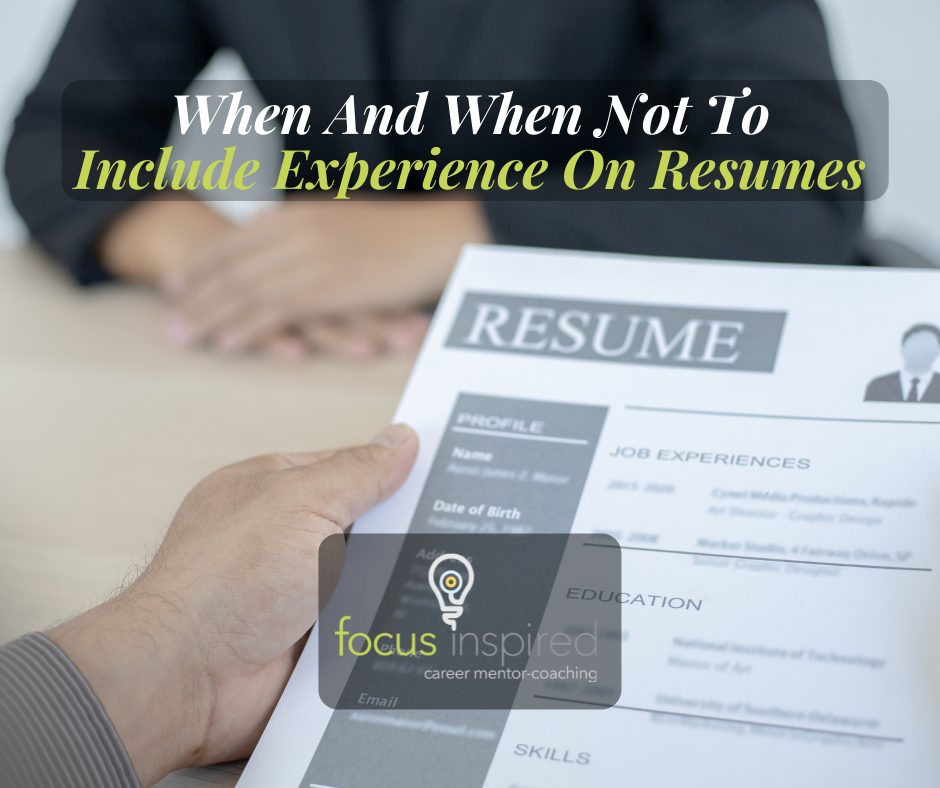
When And When Not To Include Experience On Resumes
Resumes are key and highly important personal documents to provide when applying for work. It is also one of the most customizable pieces of documentation at your disposal. Here at FOCUS Inspired, we often encourage and suggest that you tailor your resume according to the job you are applying for, so you always put your best foot forward for every position.
The challenge is always finding how much needs to be trimmed and how what is left should be presented on the page. After all, what is there should be the most relevant and important landmarks for your best image. And when it comes to volunteer experience, where do those types of entries fit, if at all?
Unsurprisingly, the answer is never a black and white “yes” or “no”, but is instead an “it depends” somewhere in the middle of the spectrum. Any of your experience may be relevant for one job and irrelevant for another, and striking the balance and understanding what needs to stay and what needs to go is an important part of a compelling resume.
Let’s start with an easy question. Why is this experience important to you? Clearly if you deem it important enough to include on your resume, you must have some sort of attachment or pride associated with it in some way. If you learned or took something away that you deemed to be a valuable part of your skillset, then it may very well be an important thing to include on your resume. Could you talk about this position in an interview? If so, could you make a compelling argument as to why your prospective employer should care about this experience?
What about the skills you gained? Although something may not initially appear relevant, it can be if you find a relation to your current work that you think might set you apart. For example, it might initially seem odd for me to include my retail jewellery sales experience on an IT service desk resume, but I felt that my years of getting to know my clients and understanding what they needed would be a big help in understanding IT issues too.
Some of you might have a whole lot of experience that could be relevant in one way or another, but including all this experience has the consequence of generating a resume that is enormously long. If the staffer has to read a novel to get a sense of who you are, chances are they aren’t going to remember all of it when it comes time for the interview, and there’s a higher chance of them focusing on the wrong pieces of your resume. You always want to be in the driver’s seat whenever possible, so it might be a good idea to reserve some of your lesser experience for the interview phase, rather than putting it all up front.
Finally, if you put something on your resume, you best be able to explain why it’s on there. The only reason I could put jewellery experience on my resume for an IT job was because I knew how it was relevant and why I felt the skills I had learned were important in earning the position. Without it, this type of experience would seem very out of place.
Of course, these are only a few things to consider when getting you started on when experience belongs and when it doesn’t. In time, you will find some of your own practices that get you more interviews and find a format that works.
Are you comfortable with your resume? FOCUS Inspired can help you too! Ask Luki about your resume today and discover more ways you can be a stand-out star!
Follow:Share: